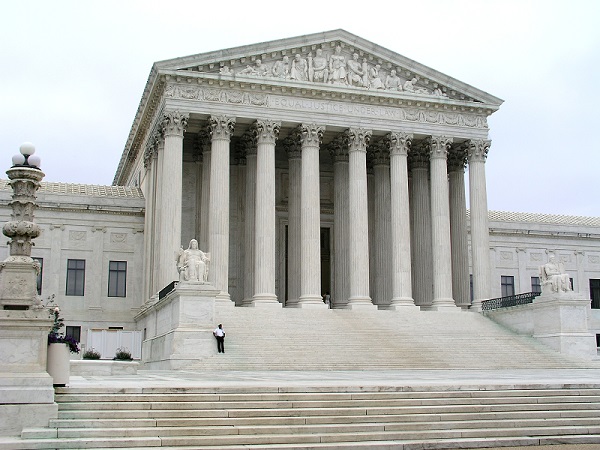 Brand-new President Donald Trump recently announced his selection for the U.S. Supreme Court, making Tenth Circuit Court of Appeals Judge Neil Gorsuch is the legal news of the week. There is no shortage of articles with their divergent analysis and predictions (filibuster?) of Judge Gorsuch as a potential Supreme Court justice. But ultimately the most useful information on what kind of jurist the judge is can be found by reading his opinions. Thus, presented below is a Gorsuth sampler:
Brand-new President Donald Trump recently announced his selection for the U.S. Supreme Court, making Tenth Circuit Court of Appeals Judge Neil Gorsuch is the legal news of the week. There is no shortage of articles with their divergent analysis and predictions (filibuster?) of Judge Gorsuch as a potential Supreme Court justice. But ultimately the most useful information on what kind of jurist the judge is can be found by reading his opinions. Thus, presented below is a Gorsuth sampler:
- Hobby Lobby v. Sebelius – Most cited in the news, this is the case regarding the Obamacare mandate that employee insurance coverage provide contraceptives. In his opinion stating that the contraceptive mandate, per for-profit closely held corporations, substantially burdened the exercise of religion, for purposes of RFRA, Gorsuch made reference to “drugs or devices that can have the effect of destroying a fertilized human egg.” (Case later affirmed by the U.S. Supreme Court.)
- Hugo Rosario Gutierrez-Brisuela v. Loretta Lynch – Alien petitioner sought review of a BIA order upholding an immigration judge’s decision by an immigration judge that pretermitted his application for status adjustment of his status under Immigration and Nationality Act (INA). Writing for the majority, Gorsuch postulated that a previous case giving federal agencies authority to interpret ambiguous laws and regulations, should be reconsidered. He wrote that the resulting practice of administrative deference is “more than a little difficult to square with the Constitution of the framers’ design.”
- A.M. v. Holmes – A mother brought a § 1983 action on behalf of her child against school officials, alleging First, Fourth, and Fourteenth Amendment violations arising from student’s arrest and subsequent search at school. The district court entered orders granting officials’ motions for summary judgment and denying mother’s for same. On mother’s appeal, the Court upheld the search and arrest, and held that the mother could not prevail on her First Amendment retaliation claim. Gorsuch wrote a dissent claiming that his colleagues had misapplied controlling case law against the state statute addressing misconduct in public schools.
- American Atheists Inc. v. Davenport – In a case involving the display of 12-foot-high metal crosses erected alongside Utah highways in memory of fallen highway troopers, the Court of Appeals reversed the district court ruling to find the display of the crosses unconstitutional. The appeals court held that the crosses could convey to a reasonable observer that the State endorsed/preferred a certain religion, and violated the Establishment Clause. In his dissent, Gorsuch asserted that his colleagues had misapplied the “reasonable observer” test.
- Direct Marketing Association Inc. v. Brohl – The Court of Appeals decided that the Tax Injunction Act did (not) bar federal court jurisdiction over a suit brought by non-taxpayers to enjoin the enforcement of notice-and-reporting requirements of state tax law that neither impose nor require the collection of a tax. Gorsuch wrote and interesting concurring opinion on the role and application of case precedent.
These opinions may not be short, nor will everyone agree with them. But there’s no denying Judge Gorsuch’s witty, sans-legalese writing style.